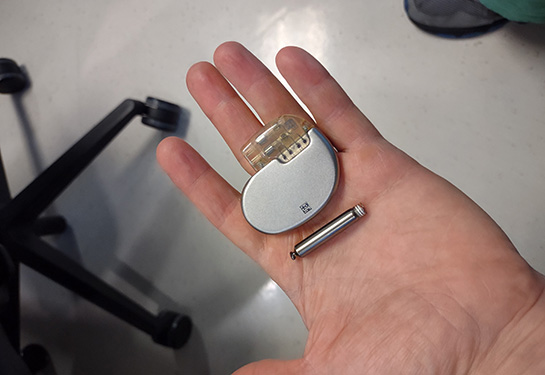Q&A: Are there “good and bad foods” in a heart healthy diet?
A healthy diet is one of the best ways to prevent and manage heart disease. However, many of us do not know what is considered “good foods” or “bad foods.”
To get a better idea during American Heart Month, we turn to Margie Junker, registered dietitian in UC Davis Health's Preventive Cardiology Program. She answered questions about what we should be eating and what we should try to limit.
Are there “good and bad foods” in a heart healthy diet?
When looking for a heart healthy diet, it is important to focus on overall healthy dietary patterns and not “good foods” or “bad foods.”
As opposed to “good foods” or “bad foods,” consider foods as “everyday foods” or “once in a while foods” – sometimes also called holiday foods.
To promote heart health and a healthy diet in general, it is important to balance overall food choices and limit processed foods. The goal is to consume a diet containing mostly whole plant-based foods with limited amounts of high-fat meats and dairy.
What is a food people think is unhealthy for their heart, but is OK to eat?
An example is eggs, which many people consider a “bad food” knowing the yolk contains saturated fat and cholesterol. However, eggs are a great source of protein and vitamins. They are also easy to cook and can be more affordable than other types of proteins. Eggs can be a good choice in moderation.
What are some foods people should try to limit?
Processed meats such as bologna, salami, pork rinds, bacon, sausages, ham and other highly processed meat products. Processed meats may contain chemicals and preservatives not found in fresh meat. They have excess sodium and higher amounts of saturated fat. I would recommend choosing plant-based proteins such as lentils, beans, nuts, nut butters, seeds, tofu, baked fish, skinless poultry or non-fat Greek yogurt instead.
Many people like to add creamer to their coffee, is this heart healthy?
Processed liquid or powdered coffee creamers may contain excess additives, preservatives, saturated fat and added sugar. I recommend trying coffee, green or black tea without creamer or low-fat dairy. You can also try dairy alternatives such as almond, soy or oat milk. Read the nutritional labels and choose plant-based milk alternatives without added sugar and excess ingredients added to flavor, fill or preserve.
Are there healthy alternatives to high fructose corn syrup?
High fructose corn syrup is used as an inexpensive way to sweeten foods such as soda, candies, salad dressings, and other processed or pre-prepared foods. Before choosing any bottled, jarred or canned foods, read the food label and choose options with less additives. To sweeten or flavor foods or beverages, consider whole natural ingredients such as small amounts of raw sugar, local honey or real maple syrup. You can also add sweet flavor by using extracts such as real vanilla extract. This is also great in coffee!



